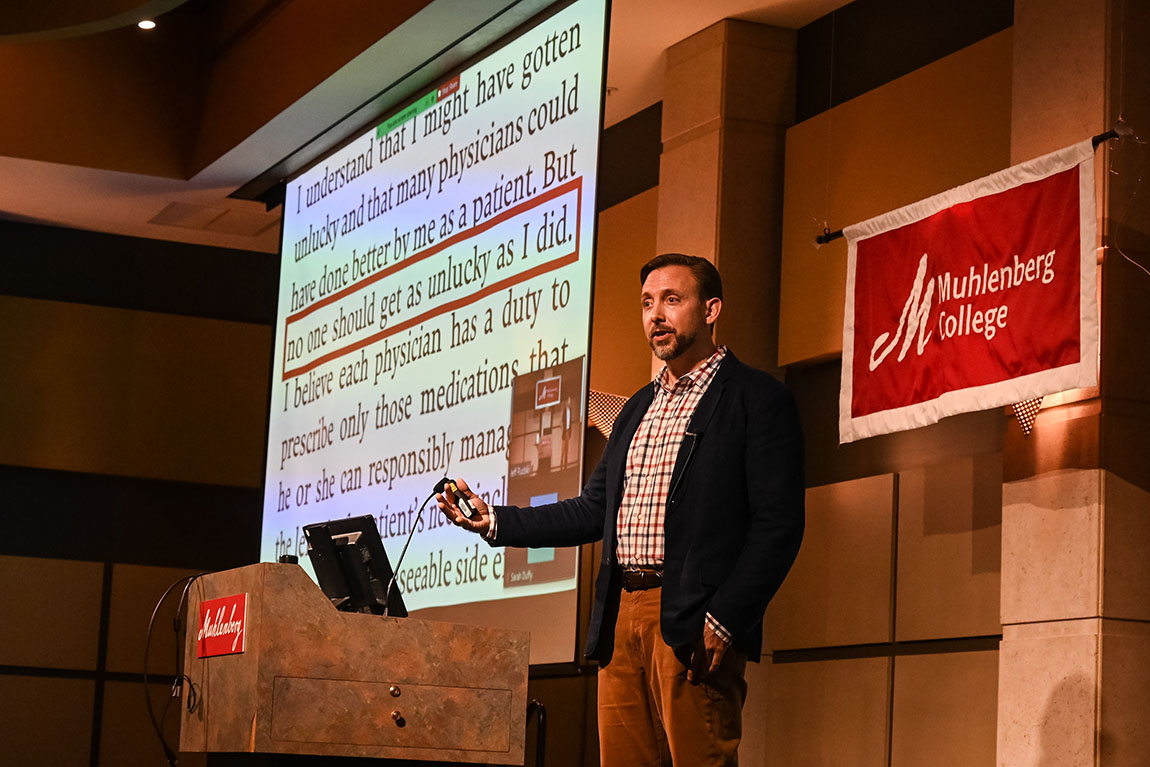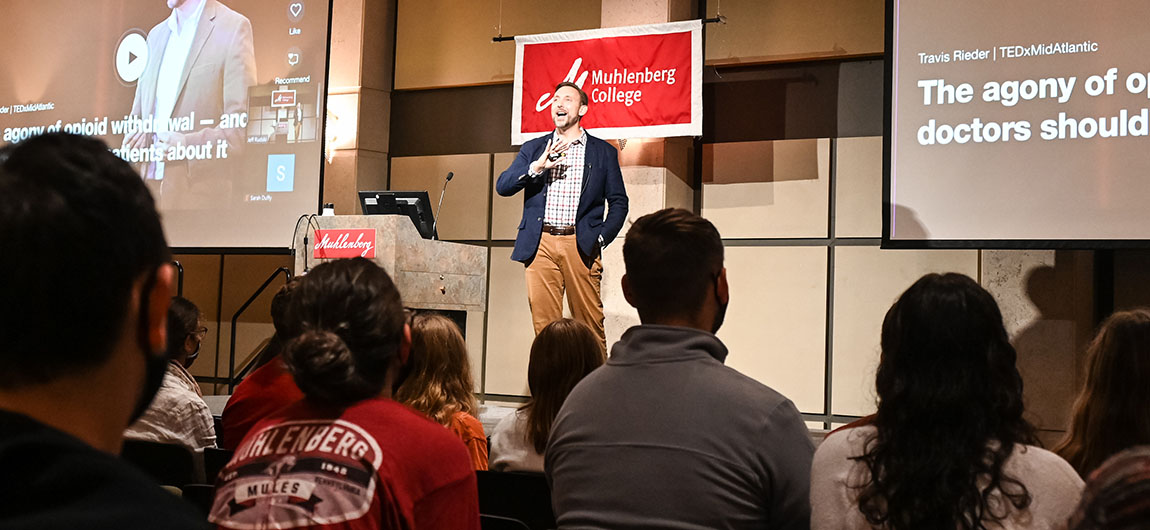Bioethicist Delivers Inaugural Shankweiler Scholars Lecture
Travis Rieder, a faculty member at Johns Hopkins University, spoke about his personal experience with opioid addiction and the takeaways for aspiring medical professionals.By: Nicolas Savo ’22 Tuesday, October 19, 2021 02:06 PM
 Bioethicist Travis Rieder delivers the inaugural Shankweiler Scholars lecture. Photos by Tom Amico
Bioethicist Travis Rieder delivers the inaugural Shankweiler Scholars lecture. Photos by Tom AmicoTravis Rieder, a bioethicist and faculty member at Johns Hopkins University, opened his October 7 lecture on campus with an understatement: “The health-care system in America has some issues.”
His talk, “In Pain: A Bioethicist’s Personal Struggle With Opioids,” was the inaugural Shankweiler Scholars lecture. In Moyer Hall’s Miller Forum, he shared his story with the Muhlenberg community: In 2015, while riding his motorcycle, he was struck by a vehicle on his left side. His left foot was demolished in the crash, and his body took months to heal. The only thing that got him through the pain was opioids.
“Opioids are godsent when you are in severe, acute pain,” he said.
Still, Rieder became dependent on opioids in the hospital. When he was released, his physician placed him on a tapering regimen that cut back his opioid intake by 25 percent each week. When Rieder attempted to follow the regimen, he experienced debilitating withdrawal three times in one month.
“Withdrawal is like a vise that just keeps twisting,” he said, adding that he could not find a doctor to help him manage the withdrawal. In the most difficult moments, he felt his only options were addiction or suicide. His takeaway from the experience was that, if this was happening to him, it must be happening to other patients as well.

“My problem is that physicians let this happen,” he said. The people whose job it is to save others were causing these very dangerous situations and denying responsibility.
He continued by sharing “three lessons. One, stopping medicine is morally different from not starting it. Two, stopping meds must be someone’s job. Three, the job isn’t always treating addiction—but it may be.”
He concluded by acknowledging the rise in opioid-related deaths during the pandemic, advocating for the use of safe injection sites and highlighting the importance of Narcan, a drug that can save the life of a person who has overdosed on opioids. A Q&A followed his talk.
“Our Shankweiler Scholar cohort spent the 2020-2021 academic year studying drugs and the opioid crisis in America in an effort to better understand one of the significant gaps in health care in the United States,” says Giulia Gerschel ’23, a biology major and French and francophone studies minor. “As a group of students who aspire to be health-care professionals down the line, bringing Travis Rieder to speak fulfilled the mission of the program by combining what we discussed in last year’s seminar and the broader goal of bettering our future career. Travis Rieder broke the complex subject down into easily understood components and used his own personal experiences (and his personable nature) to shine light on the holes in the system and make it easier for each individual to connect with the issue at hand.”
